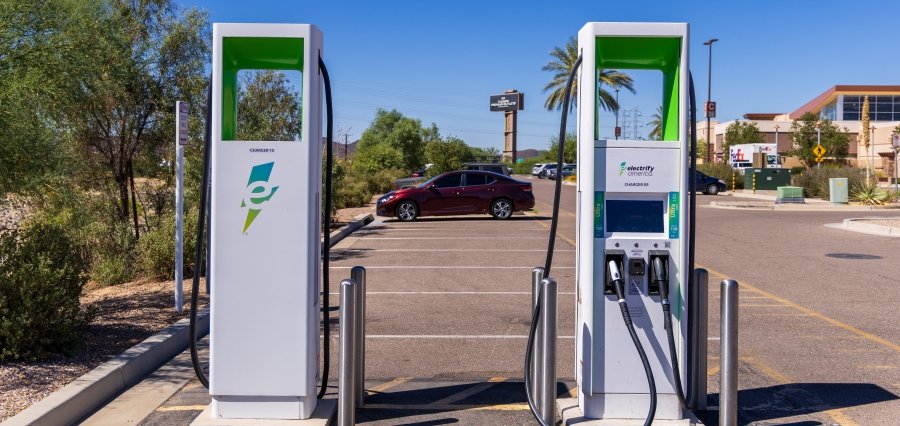Prime Highlights:
- Jeddah Transport Co. and Petromin’s Electromin division join forces to expand the city’s EV charging network, marking a key step toward sustainable mobility.
- The initiative supports Saudi Arabia’s Vision 2030, aiming to reduce carbon emissions and improve transportation infrastructure.
Key Facts:
- Electromin launched Saudi Arabia’s first nationwide EV charging network in 2022 and will help develop new stations in Jeddah.
- Saudi Arabia’s investment in EVs includes Lucid’s international factory and the Ceer brand, which plans to release its first cars by 2026.
Key Background:
Jeddah is moving forward with plans to boost sustainable transport as the city’s transport authority signed an agreement with Petromin Co. to set up new electric vehicle (EV) charging stations. According to the Saudi Press Agency, the deal is set to expand Jeddah’s electric vehicle charging network and contribute to the Kingdom’s Vision 2030 plans.
Yousef Al-Sayegh, CEO of Jeddah Transport Co., said the partnership is an important step in building advanced infrastructure to support electric mobility. He added that the project will cut carbon emissions while also improving the quality of life for both residents and visitors.
CEO, Mark Notkin, said the collaboration supports Saudi Arabia’s broader efforts to accelerate EV adoption and lead the regional energy transition.
The project aligns with the Jeddah Public Transport Program, a large-scale master plan designed to ease congestion in a city where private cars account for more than 98 percent of daily trips. The project will feature four metro lines, three light rail tracks, a tram along the corniche, a bus rapid transit system, a commuter railway, a waterbus service, and 11 park-and-ride stations.
Saudi Arabia is actively growing its electric vehicle (EV) sector. The country’s sovereign wealth fund has put money into the US-based EV company Lucid and has also introduced Ceer, a homegrown brand that plans to launch its first cars by 2026.
Lucid has set up its first overseas factory in King Abdullah Economic City. At present, the facility is able to put together around 5,000 cars a year, but production capacity is expected to grow to 155,000 vehicles annually once it is fully developed.
Alongside these developments, Jeddah’s plan to expand EV charging stations marks another strong step toward a cleaner and more sustainable transport system in the Kingdom.
Read Also: Adnoc Gas Secures Spot in FTSE Index, Set to Attract $250 Million Investment




